The Bharatiya Janata Party on Tuesday pitched for simultaneous elections for Lok Sabha, state assemblies and local bodies and called for the same voters' list for all polls, as it told the former president Ram Nath Kovind-led committee on 'one nation, one election' that this will help realise the aspirations of a "Viksit Bharat".
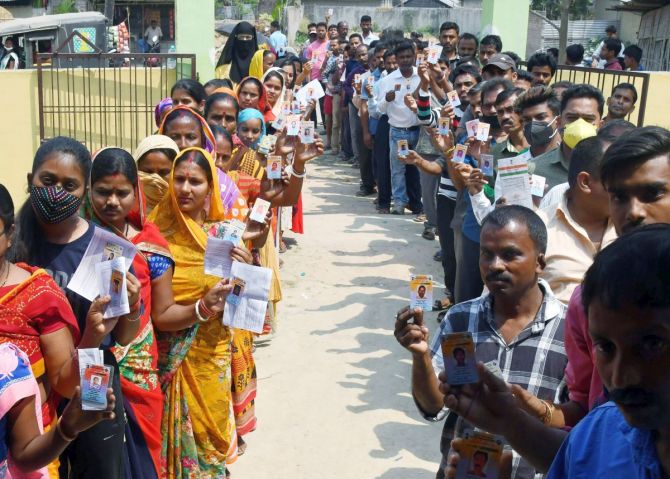
"One nation, one election' is a concept whose time has come and we need to provide a model governance structure for our youths by implementing this idea in the 'Amrit Kaal'," a BJP delegation led by party president JP Nadda said.
Frequent elections cause religious, caste and political divisions in addition to political instability and an adverse impact on the economy, the party in its representation to the committee said. It added that simultaneous polls will boost corporate and foreign investment.
It will strengthen the country's federal structure as well, it said.
Briefing reporters, Nadda said his party has proposed that if holding the three-tier polls together was not possible immediately, then Lok Sabha and assembly elections can be held together first.
But in the long run, local body polls should also be held alongside Lok Sabha and assembly elections or it will defeat the purpose due to the frequent imposition of the Model Code of Conduct, he said.
The committee should evolve a consensus on holding simultaneous elections, Nadda said, expressing confidence that everyone will move together on this.
Major opposition parties, including the Congress, the Trinamool Congress and the DMK, have strongly opposed the idea, first mooted by Prime Minister Narendra Modi, dubbing it as an assault on the country's federal structure.
The BJP in its representation cited Prime Minister Modi's assertions to say that simultaneous polls will bring about nine positive changes, including making good governance a central point of politics, curbing avoidable usage of resources and controlling corruption in politics.
Cutting the influence of black money, limiting the effect of divisive and polarising politics seen during frequent elections, strengthening political stability and adding to politicians' democratic responsibility were among the other likely impacts cited by the BJP.
Highlighting the points his party made in its representation, Nadda said the MCC is often imposed in different parts of the country as one or the other election is held, affecting administration and good governance a lot.
Ongoing pro-people work is stopped during the period of an election, often three times in a state, bringing stagnation to economic activities and adding to financial burdens on political parties and on governments, he said, adding that it also gives rise to corruption.
Security forces deployed for internal and external security are also used for poll duties frequently in case of separate elections, Nadda said, noting that civil staff like teachers and health sector workers are also part of election work. This adversely affects administration and pro-people work, he said.
The BJP wants that the law should be amended for holding simultaneous polls, Nadda said, favouring a consensus.
The party's representation cited the example of Maharashtra, noting that in 2016-17 some or the other part of the state was under the MCC for 307 days out of 365 days.
Such a continuous electoral cycle can be dangerous for the country's development and democracy, it said, adding that on an average five to seven assembly polls take place round the year.
The BJP believes that the fundamental reason for 'one nation, one election' is not essentially about curbing election expenditure but that frequent elections are an obstacle to policy decisions and development projects.
In its representation, the BJP said the idea of simultaneous elections is not new to India.
"In 1951-52, despite problems prevailing, elections to the Lok Sabha and all the state assemblies were held simultaneously in India. This system was successfully adopted in all the three general elections held in 1957, 1962 and 1967," the party said.
"Therefore, one thing becomes clear that the logical implementation of 'one nation, one election' in our country was done in the general elections of 1952 itself," it said.
The BJP, however, noted that this cycle was interrupted due to the premature dissolution of some assemblies in 1968 and 1969. Subsequently, the Lok Sabha was also prematurely dissolved in 1970 and since then, India has been trapped in a complex web of sequential and never-ending elections, it said.
"Keeping in mind the development and progress of the country, the significant increase in voter awareness and the fact that the idea of 'one nation, one election' was successfully implemented in 1952, it becomes clear that the country can implement this 'siddhant' rationally," the party said in its representation.
The BJP said after the simultaneous election process was disrupted in 1970, the concept of 'one nation, one election' was seen in the first annual report of the Election Commission, published in 1983.
"Subsequently, the Law Commission Report No. 170 in 1999 further clarified this concept. It was also part of the 79th report of the Standing Committee of Parliament which came in 2015," it added.
Nadda was accompanied by party leaders Bhupender Yadav, also a Union minister, and Om Pathak in making the representation to the committee.
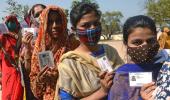
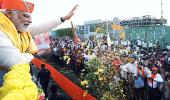
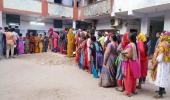

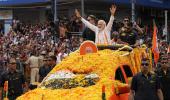






 © 2025
© 2025